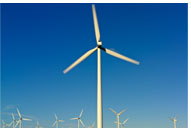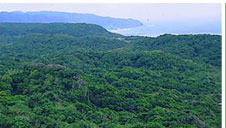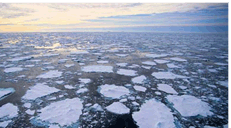




ACBCCU - 2022 |
||||||||
| Awareness and Capacity Building Programme on Carbon Capture and Utilization plus Net-Zero Future In collaboration with the India International Centre (IIC), Dr (Mrs.) Malti Goel, President, Climate Change Research Institute (CCRI) conducted international webinar on Carbon Capture and Utilization plus Net-Zero Future February 4th , 2022 The Climate Change Research Institute organized the virtual workshop on “Carbon Capture and Utilization plus Net-Zero Future” ’in collaboration with the India International Centre on 4th February 2021 having eminent speakers. Prof. D.P. Agrawal, Chairman, Governing Council, Climate Change & Research Institute (CCRI) and former Chairman, UPSC delivered the Welcome Address and observed that shifting seasons, changing rainfall patterns, floods and fires across the globe as a result of climate change have become realities before us. Policies of the government towards clean energy transition should look for peoples’ participation, which required a lot of behaviour change to conserve energy and development of cost-effective technology for CO2 sequestration. Dr. (Smt) Malti Goel, President, CCRI and former Adviser, DST, Govt. of India said that In the light of discussions in the COP 26 meeting held in Glasgow in November 2021, it was agreed to take intense climate change mitigation actions in a move towards net-zero emission targets and it is vital to recognize Carbon Capture and Utilization (CCU) as one of the key energy technologies and understand natural and manmade carbon sinks on land and air in accelerating the progress towards a net zero future. She briefly described CO2 capture processes and said that scenario of actions for CO2 utilization is very wide. We should define a twenty years road map for adoption of CCU. Prof. K. Palanivelu, Director, Climate Change & Disaster Management, Centre for Environmental Studies, Anna University, Chennai gave Keynote Address on CO2 Utilization from Large Scale Stationary Sources. He explained the background for need for reducing CO2 emissions in the atmosphere and carbon capture and utilization (CCU) as plausible option. He cited that the number of carbon capture and storage (CCS) patents registered has increased from 203 in 2020-21 from just 62 patents five years ago. The Circular Carbon Economy employs a technology-neutral whole systems approach to achieve energy market stability, responsible and inclusive economic growth. He described challenges in adoption of CCU technology. Guest Lecture on Solvents from Renewable Resources for CO2 Capture was delivered by Prof. Mohamed Kheireddine Aroua, Associate Dean (Research and Post Graduate Studies) and Head, Centre for Carbon Dioxide Capture and Utilization, Sunway University, Malaysia. Prof Aroua described desired features of a green solvent for CO2 capture and collaborative researches with other Universities undertaken for development of new solvents and formulations with a focus on solvents derived from renewable resources for achieving long-term sustainability. Prof Aruoa is leading research at Sunway Smart Materials Science & Engineering Research Cluster, School of Engineering and Technology, Sunway University, Malaysia, Professor, Department of Engineering, Lancaster University, UK. Shri Gautam Sen, former Senior Vice President, Reliance and former Executive Director, ONGC talked about technological complications in carbon capture and employment generation in CCS for geologists and engineers. He described direct air capture and point sources capture processes adopted and challenges in them. He suggested large-scale biosequestration and capturing carbon using PCC and storing carbon in basalts, old oil and gas fields, if available, as EOR or otherwise, and subsequently follow it up with DAC as R and D in urban area. Dr. Abhijit Mitra, Director, Research, Techno India University, West Bengal and former Head, Dept. of Marine Science, University of Calcutta delivered a lecture on ‘Blue Carbon Reservoir of a Blue Planet’, He said Blue Carbon (BC) refers to organic carbon that is captured and stored by the oceans and coastal ecosystems; particularly vegetated coastal ecosystems seagrass meadows, tidal marshes, and mangrove forests. Global interest in BC is rooted in its ability mitigate climate change while achieving co-benefits, such as coastal protection and fisheries enhancement. He added that India is in a very good position in terms of the blue carbon. The workshop was attended by over one hundred participants. The deliberations followed with a live question and answer session Click here to watch full workshop video: https://youtu.be/iAP3gc4CYXE » Click here to download Proceedings |
||||||||






|
||||||||
Home | About us | Member | Brochure | Highlights | Education & Awareness | Our Patrons | Disclaimer | Copyright | Gallery | Contact |
||||||||
| Copyright © Climate Change Research Institute |
|